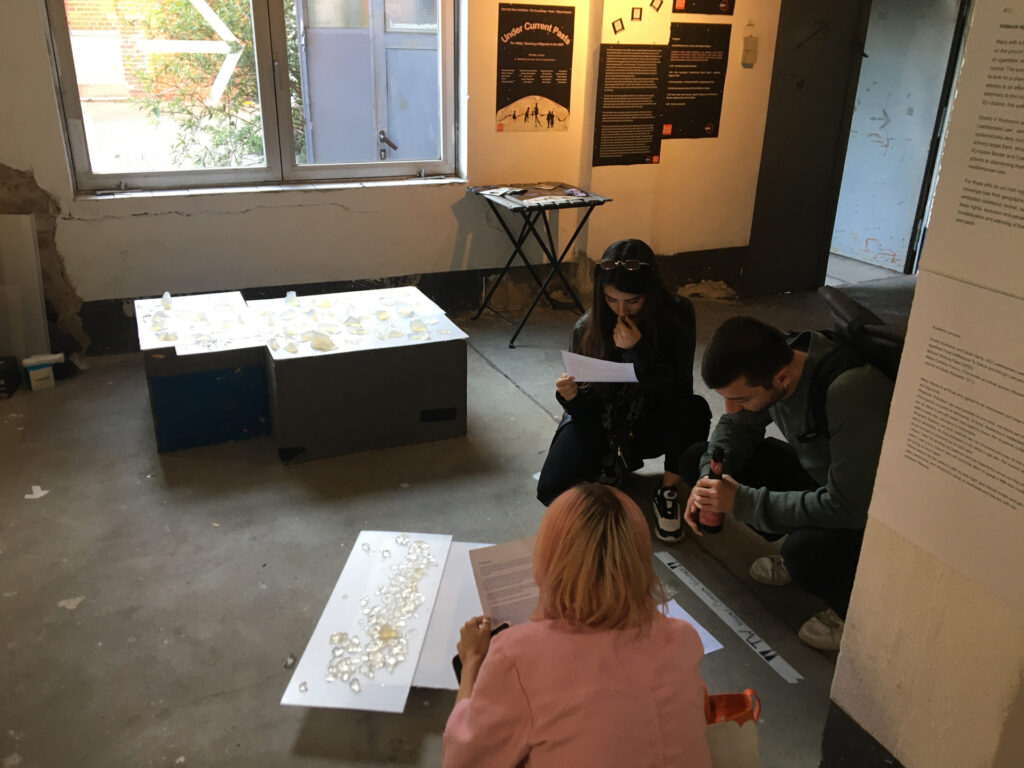Margherita Carlon
Hideous syringe city, surfaces suddenly.
Still and sparkling.
2023, Bard College Berlin
Many with a EU passport experience the border as an imaginary line on the ground: that what separates you from expensive or cheap gas or cigarettes; at most, a door at the customs office or a passport control. The knowledge of crossing a border might entice a EU citizen to look for a change in the air pressure, for something that bears witness to an effective change, when in fact often there is little to testimony to this imaginary wafer-thin line. But for many who are not EU citizens, this wafer-thin line broadens into an abyss.
Dimitry V. Kochenov and Sarah Ganty coined the term “European Lawlessness Law”, demonstrating how EU law is structured to systematically deny non-white migrants the most basic rights, and to actively target them, through proxies such as FRONTEX (the European Border and Coast Guard Agency), through funding Libyan prisons or abandoning them to the deadly forces of nature such as the mediterranean sea.
For those who do not hold regular documents, borders and border crossings lose their geographical manifestation and become embodied conditions; liminal, lawless spaces, of lack of protection of basic rights, exclusion and persecution, and consequently, of invisibilization and silencing of their voices, experiences, memories and pasts.
Academic sources:
Dimitry Kochenov and Sarah Ganty. «EU Lawlessness Law: Europe’s Passport Apartheid From Indifference To Torture and Killing» (January 2, 2023), Jean Monnet Working Paper 2/2022.
Marie-Christine Fourny. «The border as liminal space» (November 1 2013), Journal of Alpine Research 101-2.


